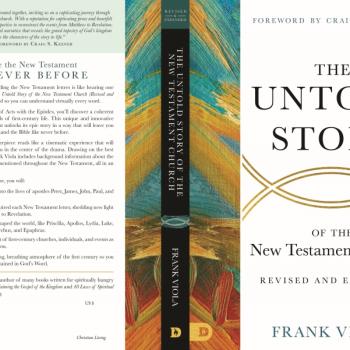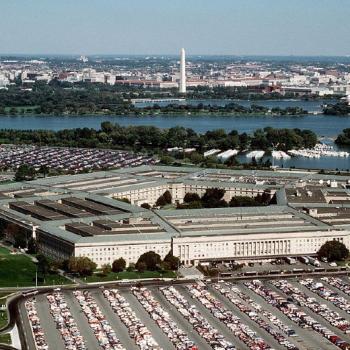 By Kevin Appleby
By Kevin Appleby
The U.S. Catholic bishops have been very involved in the national immigration debate, having called for reform of our nation's immigration laws, including a controversial proposal that would provide a path to citizenship for the undocumented.
Some Catholics have questioned out loud the bishop's involvement in the issue, suggesting that the church should remain neutral in such an emotionally charged debate. If one looks at the history of the U.S. Catholic Church, however, it is understandable that the church hierarchy sees it not only as a justice issue but as important to the future of the American Catholic community.
More than any other organized religion in the United States, the Catholic Church is an immigrant church that has grown in lock step with the nation, welcoming successive generations of immigrants who have helped build our nation.
Indeed, the church and her institutions have welcomed and helped integrate into American life Irish and Italian immigrants who arrived in the late 19th and early 20th century; Central and Eastern Europeans who fled Europe after the Second World War; and Latin American and Asian populations more recently. To borrow a phrase from a toy store, immigrants are us.
During each successive wave, the church and the bishops defended the rights of newly arrived immigrants, arguing, in contrast to nativist organizations, that immigrants by and large added to the strength of our country by bringing to our shores unique skills, perspectives, and traditions. These new arrivals, the bishops claimed, enriched our culture and way of life. Given the success of our country as a global superpower, they were right.
The same debates are playing out today, as immigrants from Latin America, Asia, and Africa -- the majority Catholic -- are becoming part of American society. And once again, the Catholic Church stands in the forefront of defending their basic rights and dignity.
Critics of the position of the bishops state that the church only wants more Catholics in the pews and that speaking in favor of immigrants is, in fact, a way to ensure that the new arrivals join and contribute to the local parish.
What they do not know is that immigrants are already here, drawn to the United States by the magnet of jobs and the opportunity to earn ten times more in a day than in their native lands. What also is not mentioned is that undocumented immigrants, who work in important industries such as agriculture and service, want to migrate legally but that there are insufficient -- only 5,000 -- permanent visas in the system for unskilled workers.
Immigrants are present in Catholic social service programs, hospitals, schools, and parishes, and each day a priest or employee is approached by an immigrant asking for help for a loved one -- a parent who has been detained, a child who has been involuntarily left behind by two deported parents, or a distraught family member who has lost a loved one in the desert.
Without changing the law governing immigration, often priests, employees, or the bishops themselves cannot help them or help keep their families together.
How does the outcome of the immigration debate, therefore, impact the future of the American church as well as the nation?
Close to 5 million U.S. citizen children live in "mixed-status" households, where one or more parents are undocumented. Another 700,000 minors are without legal status, having been brought to the United States by their parents when they were small children.
In many ways, they are the future leaders of our communities, parishes, and nation, but they constantly live in fear of the knock at the door, where they and/or their parents will be taken away at a moment's notice. Instead of developing their talents and building their confidence in this country, we are alienating them and squandering their potential. In many ways, we are shaking their faith in God.
As pastors, the bishops and priests are charged with ensuring that all Catholics and those of good will are given the opportunity to know God and to be with Him. It is also an obligation of all Catholics. This important responsibility is not dependent upon where a person was born and what legal status he or she may have or not have. Advocating for immigration reform is yet another way for the Catholic clergy, joined by the Catholic faithful, to fulfill that responsibility.
Just as past waves of Catholic immigrants have arrived to enrich, build, and help lead our church and nation, so will this generation, provided we give them the opportunity to reach their God-given potential. Reforming our immigration system and bringing them and their families out of the shadows will help set them, and us, on the right course.
Kevin Appleby has been the director of Migration and Refugee Policy for Migration and Refugee Services of the U.S. Conference of Catholic Bishops for the past eight years. Kevin has testified before Congress on immigration issues and represented the U.S. Catholic bishops on these issues at public events and with the media. He is a member of the board of the National Immigration Forum and the social policy committee of Catholic Charities USA.
7/19/2010 4:00:00 AM




